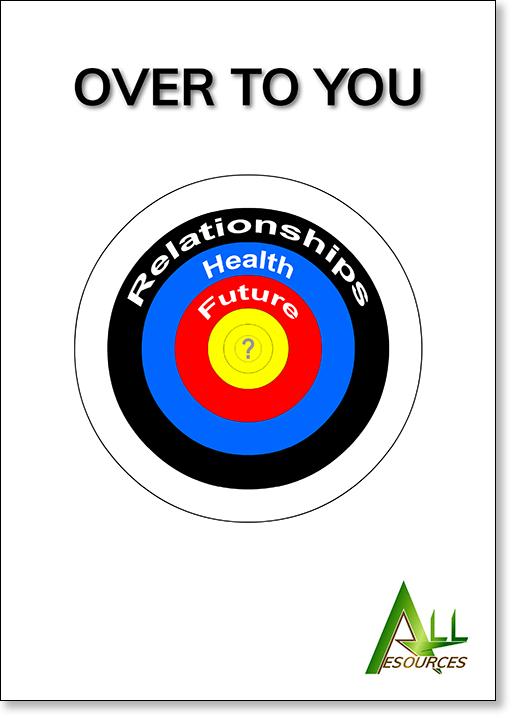Goal Setting

Over to You
A valuable PSHE resource pack covering self-esteem, motivation, confidence and self-awareness — a comprehensive trainer manual containing workshops and worksheets.
- Age range: 12 years and upwards
- Category: Schools
- Last revised: 2022
- Pages: 190
- Illustrated throughout
Hard copy: £49.99 add to basket
What is Goal Setting?
Whatever we do in life, and wherever we go, there are going to be times when we need to set goals. Whether it be goals on our career path, for our education, or for our health and wellbeing, we need to set goals for a number of areas in life.
Goal setting is a valuable tool which we use when we are working towards an important life goal. It is usually set out as a series of steps which gradually lead towards an end target.
How Do I Set Goals?
A useful way of thinking about this is to think of a goal as a target. Imagine we are facing a large dart board and we need to hit the centre. This target can be anything — it can be our ideal weight, our chosen career, or a degree or diploma we have been working towards.
Reaching our goals requires hard work and dedication. Are we willing to make sacrifices? Will we give up our time to study? Will we forego the delicious chocolate desert to reach our goal weight? These are questions only we as individuals can answer.
We often hear about SMART goals. SMART stands for:
- Specific (this means the goals are precise — they mean exactly what they say).
- Measurable (we can measure the goals against a standard).
- Achievable (the goals are possible — they are challenging but reachable with hard work).
- Relevant (these goals are realistic and are a key requirement to reach the target).
- Time bound (the goals are time-based — we need to set a limit on the time it takes to reach the goal).
When setting goals, a SMART plan is one that is clear, attainable and meaningful. By using this tool, our goals will not be vague or half-hearted, and we will be able to achieve the things we want in life.


